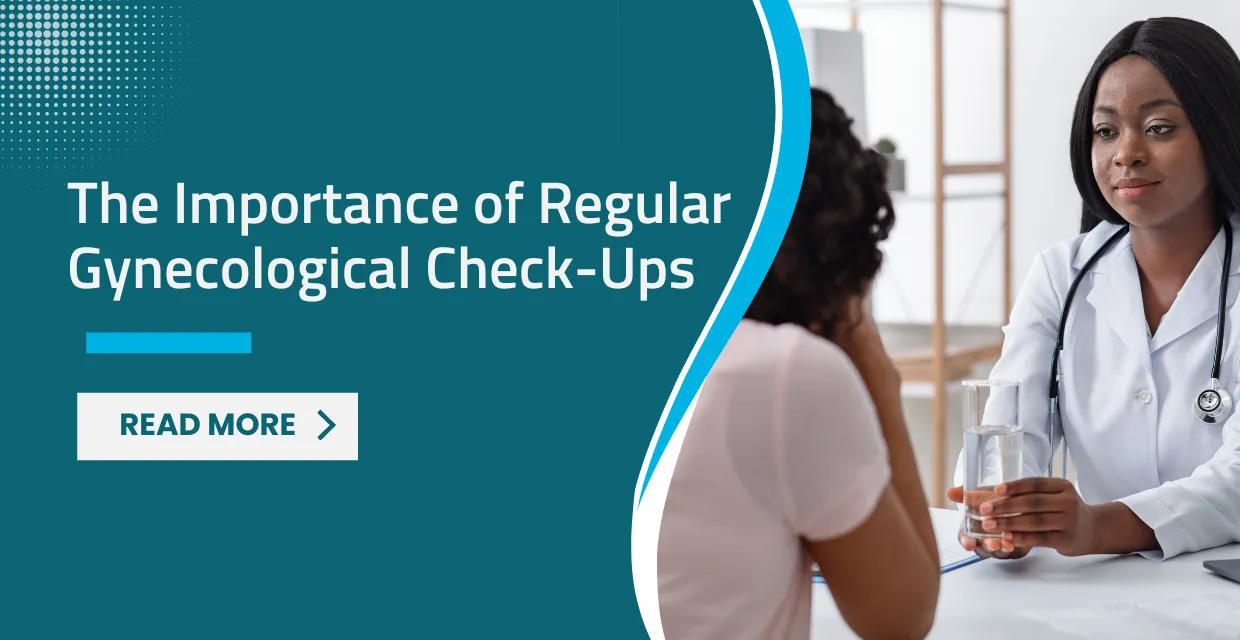Breast Cancer Awareness: Early Detection Saves Lives
Breast cancer remains one of the most common cancers among women worldwide, with its incidence rising, particularly in developing countries, including Kenya. The...

Regular gynecological check-ups are a cornerstone of women's health, offering a proactive approach to detecting, treating, and preventing a wide range of health issues. These visits are not just about addressing reproductive health but encompass a broader spectrum of women's wellness, from adolescence through menopause and beyond. Healthcare access and quality have seen significant improvements, and choosing a reputable gynecology Hospital in Kenya is crucial for ensuring comprehensive care.
Gynecological health covers various aspects of the female reproductive system, including the uterus, ovaries, fallopian tubes, and breasts. Regular check-ups serve as a preventive measure, allowing for early detection of potential health issues such as cervical and breast cancer, sexually transmitted infections (STIs), and hormonal disorders, which can significantly impact a woman's health and quality of life.
One of the primary benefits of regular gynecological visits is the early detection of diseases, particularly cervical cancer, through Pap smears and human papillomavirus (HPV) testing. Early stages of cervical cancer typically present with no symptoms, making regular screenings vital for early detection. In Kenya, where healthcare resources can be limited, especially in rural areas, access to a gynecology hospital that offers these essential screenings is indispensable.
Regular gynecological check-ups provide an opportunity to discuss reproductive health, including menstruation, contraception, fertility, and pregnancy. For many women, these visits are a chance to address concerns such as menstrual irregularities, contraception options, and preconception counseling, ensuring informed decisions about their reproductive health.
Gynecological visits are an integral part of maintaining sexual health. They offer a confidential setting to discuss sexual activity, risks, and prevention of sexually transmitted infections (STIs). Screening for STIs is an essential service provided by gynecology hospitals in Kenya, allowing for the timely treatment and prevention of complications such as infertility and chronic pelvic pain.
As women transition into menopause, they face a new set of health challenges, from hot flashes and mood swings to increased risk of osteoporosis and cardiovascular disease. Regular check-ups with a gynecologist can help manage these symptoms through hormone therapy, lifestyle adjustments, and other treatments, improving quality of life during and after the menopausal transition.
Gynecological check-ups often include breast exams to check for lumps, skin changes, or other signs of breast cancer. For women at higher risk or over a certain age, gynecologists can also recommend and facilitate mammograms. In Kenya, where awareness and access to breast cancer screening can vary, gynecology hospitals play a crucial role in educating women about the importance of breast health.
Issues such as urinary incontinence and pelvic organ prolapse are common but often overlooked aspects of women's health. Regular gynecological visits can help diagnose and treat these conditions, which tend to increase with age or after childbirth, improving a woman's overall well-being and quality of life.
Regular visits allow women to build a relationship with their gynecologist, creating a comfortable environment to discuss sensitive health issues. This rapport is crucial for addressing intimate health concerns and ensures that women receive personalized and compassionate care.
In Kenya, the role of gynecology hospitals extends beyond individual health care to encompass community health education and outreach. These institutions often serve as centers for women's health education, offering resources and information on a wide range of topics, from family planning and maternal health to gender-based violence and female genital mutilation (FGM), issues that are particularly relevant in certain regions of the country.
When selecting a Gynecology Hospital in Kenya, factors to consider include the qualifications and experience of the medical staff, the range of services offered, and the hospital's reputation within the community. Women should seek hospitals that provide a supportive and respectful environment, up-to-date medical practices, and confidentiality, ensuring a positive and empowering healthcare experience.
Regular gynecological check-ups are an essential aspect of women's health care, offering numerous benefits that extend far beyond reproductive health. These visits provide a foundation for preventive care, early detection of diseases, and the management of a wide range of health issues, ensuring that women receive the care and support they need at every stage of life. In Kenya, the availability of quality gynecology hospitals is key to advancing women's health and wellness, contributing to the broader goal of improving public health and empowering women to lead healthy, fulfilling lives.
Partager cet article